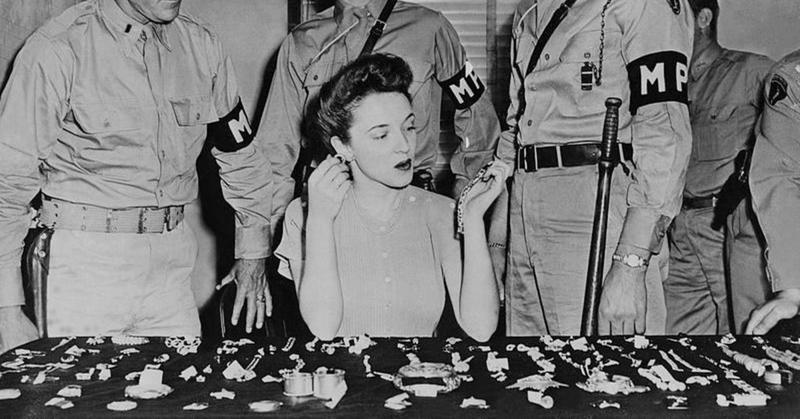The Theft Of The Hesse Crown Jewels
By | July 22, 2021

In 1944, Prince Wolfgang of the House of Hesse was forced to flee his family's ancestral castle outside Frankfurt for fear of invading Allied troops taking it by force. It was a valid concern: The U.S. military had a habit of seizing European castles and using them as rest and recuperation centers. Before he left, however, he ensured the security of the family's treasures, most importantly the Hesse Crown Jewels, a collection that included dozens of rings, bracelets, tiaras, necklaces, and more than 500 carats of loose diamonds. After placing the jewels in a zinc-lined box, he buried them deep in the dirt floor of the castle's cellar, poured concrete over the top, then built an entire secret room around it. You couldn't say he didn't try.
American Woman
He was no match, however, for Captain Kathleen Nash of the Women's Army Corps. When American forces ultimately claimed Kronberg Castle, the plain-looking woman in her early forties was put in charge of running the recreation center. There was no reason to doubt her trustworthiness—she had a squeaky clean service record—but then, over the course of many legendary drinking binges at the castle's bar, she fell for Colonel Jack Durant.

On November 5, 1945, Nash sent a member of her staff, Roy Carlton, to investigate a rumor he'd heard from a local about buried treasure in the castle's cellar. After noticing two electrical wires that seemed to disappear inside a stone wall, he sledgehammered his way into what he discovered was the secret room. Upon further inspection, he observed a patch of concrete that appeared fresh, so he busted into it and unearthed the zinc-lined box that Prince Wolfgang had buried.
Buried Treasure
Nash ordered Carlton to deliver the treasure trove to her personal quarters for safekeeping and immediately called Durant. Later that day, Durant asked a friend, Major David Watson, who'd overheard some of the earlier telephone conversation, about the legality of keeping valuable property that had been abandoned by Germans and eventually spilled the whole secret to him. Nash, Durant, and Watson gave several gems to Carlton to buy his silence, then decided to remove the jewels from their settings so they could pawn some of them in Britain and mail the rest back to the U.S. Some 30 boxes were shipped out of the country in the following weeks, mostly to Nash's sisters in Wisconsin and California but some to Watson's parents in the Golden State and Durant's brother in Virginia.

They got away with it for several months, but then, as Princess Sophie of Greece prepared to marry Prince George Wilhelm of Hanover, she asked her cousin, Prince Wolfgang, for a selection of the Hesse Crown Jewels to wear as she walked down the aisle. He sent a servant to Kronberg Castle with instructions to retrieve the jewels, and upon discovering them missing, the Hesse family filed a complaint with the authorities. It didn't take investigators long to determine who was behind the theft, and the three Americans were arrested, tried, and sentenced to prison.
But Where Were The Jewels?
Authorities managed to recover three jars full of diamonds Durant had buried on his family farm in Virginia and a 36-piece, jewel-encrusted gold flatware set that Nash's sister in Wisconsin had been using as everyday eating utensils, but by the time the thieves were caught, most of the treasure had already been sold. Less than half of the Hesse Crown Jewels were ever recovered.

